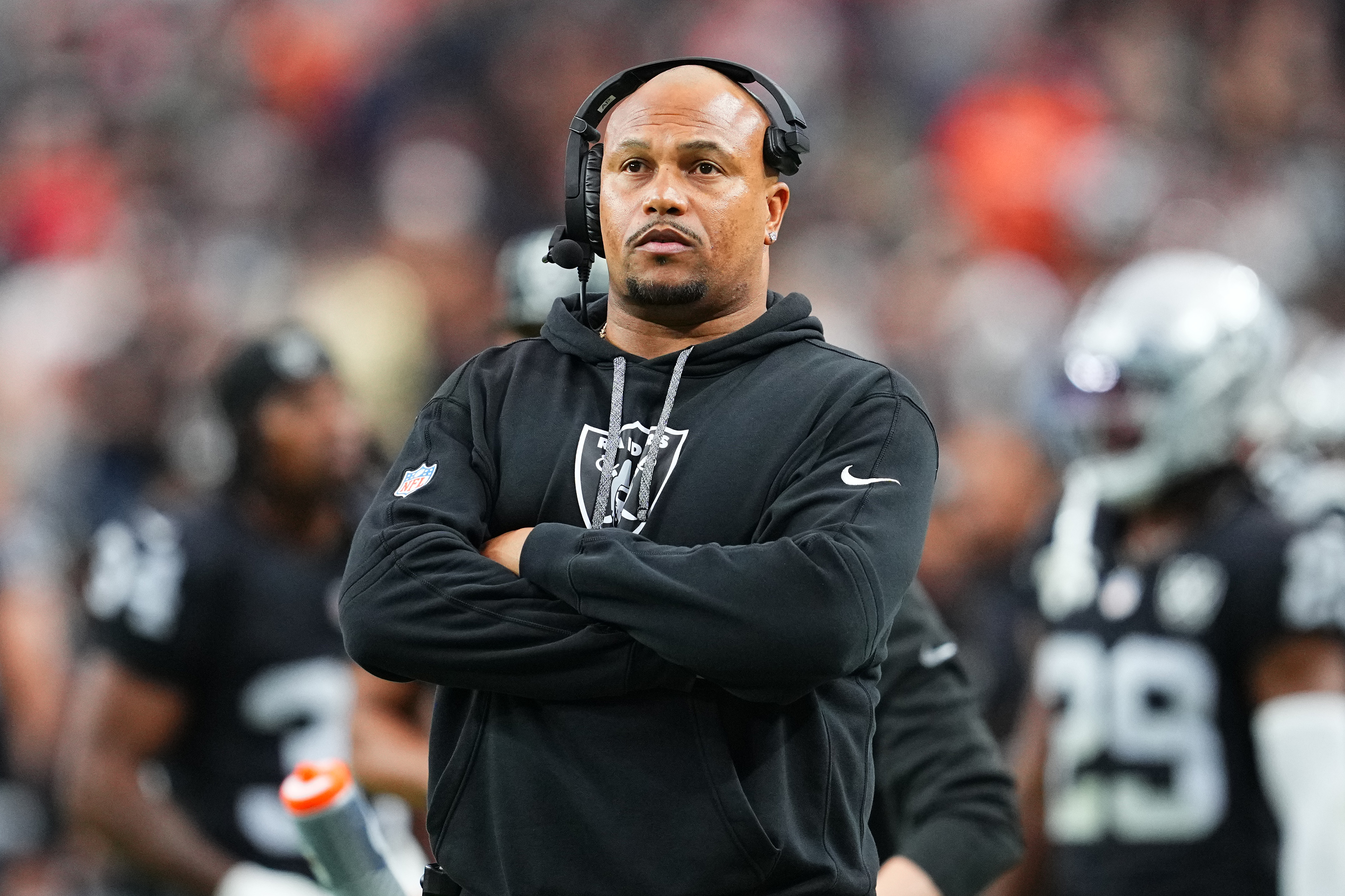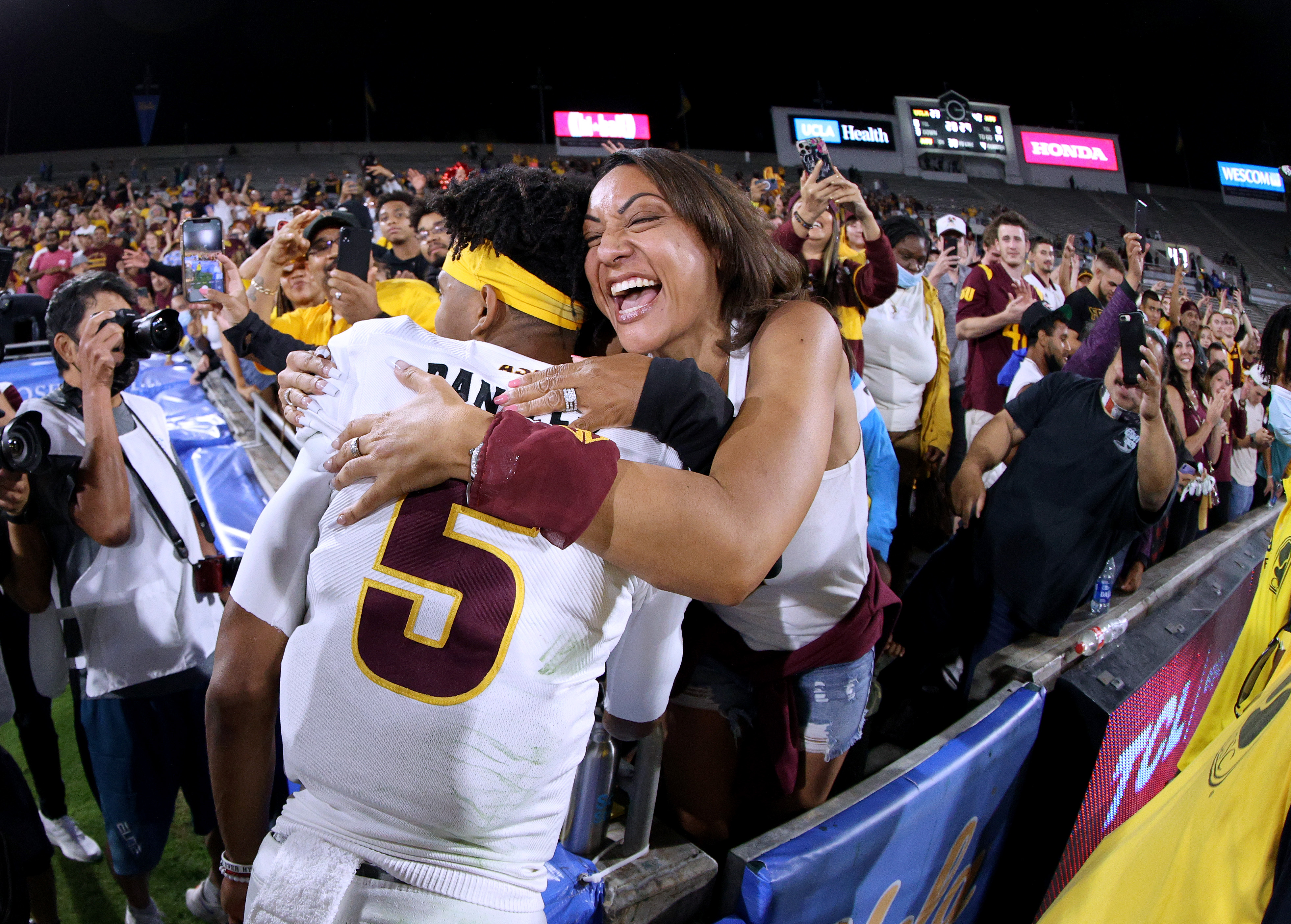Antonio Pierce, now the head coach of the Las Vegas Raiders, has been handed an eight-year show-cause penalty by the NCAA for his involvement in a series of recruiting violations at Arizona State University. These infractions, which occurred during the COVID-19 recruiting dead period, involved Pierce orchestrating and executing impermissible visits and inducements for prospective players. The violations have left a lasting mark on ASU’s football program and Pierce’s coaching legacy.
Antonio Pierce Led ASU’s Recruiting Violations
As ASU’s defensive coordinator and recruiting coordinator under head coach Herm Edwards, Pierce spearheaded a scheme to bypass NCAA rules during the 2020 dead period, a time when schools were prohibited from in-person contact with recruits. The NCAA’s Division I Committee on Infractions found that Pierce and other staff members organized impermissible unofficial visits for more than 35 prospects, violating recruiting guidelines.
Pierce’s involvement went far beyond just coordination. He reportedly paid for airfare, lodging, meals, and other entertainment, including trips to bowling alleys, a shooting range, and even a strip club for the parents of one recruit. The NCAA report stated, “Pierce knowingly and blatantly disregarded fundamental dead period legislation to orchestrate the majority of violations in this case.” His actions violated the no-contact policies in place during the pandemic and involved 27 instances of recruiting inducements.
Recruiting Violations Ignored COVID-19 Dead Period Restrictions
Over the span of 15 weekends, Pierce, alongside other ASU staff members, including Regina Jackson, the mother of former ASU quarterback Jayden Daniels, arranged numerous visits. Jackson, identified as a booster in the case, used her credit card to book flights and lodging for recruits, while Pierce reimbursed her in cash. These visits were organized despite the COVID-19 recruiting dead period, when all in-person contact with recruits was strictly prohibited.
Pierce and other ASU staffers even traveled out of state to evaluate prospects, further violating the NCAA’s recruiting restrictions. In total, Pierce organized approximately 20 meetings with recruits during this period, ensuring ASU stayed aggressive on the recruiting front, even when NCAA rules forbade it.
Severe Penalties for Pierce and ASU Staff
For his actions, the NCAA issued Pierce an eight-year show-cause penalty, one of the most severe sanctions a coach can receive. This penalty, while not affecting his current role as the Las Vegas Raiders’ head coach, makes it nearly impossible for him to return to the college ranks without significant restrictions. A show-cause penalty requires any NCAA school that hires the coach to adhere to the NCAA’s imposed penalties for a set duration.
Anthony Garnett, a former ASU support staffer, also received a five-year show-cause penalty for his role in the violations. Garnett was directly involved in facilitating transportation and recruiting contacts with prospects during the dead period.
Earlier, Herm Edwards, ASU’s head coach at the time, agreed to a five-year show-cause penalty, one of the longest ever for a head coach. Edwards admitted to meeting recruits both on and off campus during the dead period, violating strict NCAA rules. Six other ASU staff members have already been penalized as part of this case.
ASU’s Self-Imposed Sanctions
Arizona State responded to these violations with significant self-imposed sanctions, which helped mitigate additional punishments from the NCAA. The school implemented a self-imposed bowl ban for the 2023 season and reduced its scholarship allotment for the 2024 season to 84, one fewer than the NCAA allows. Additionally, ASU limited its recruiting visits and contacts with prospects during the 2022 and 2023 seasons.
In light of these self-imposed measures, the NCAA opted not to add further penalties. ASU’s compliance actions included reducing recruiting opportunities, restricting in-person days for coaches, and cutting down the number of official visits prospects could take. These moves, while damaging to the program in the short term, helped ASU avoid more severe long-term consequences.
Antonio Pierce’s Defiance and Non-Cooperation
Throughout the investigation, Pierce consistently failed to cooperate with NCAA officials. He refused to provide financial records when requested and gave misleading information regarding his involvement in the violations. The NCAA concluded that Pierce’s “defiance of and indifference to NCAA rules” contributed to the severity of the penalties issued.
The 40-month investigation revealed that Pierce’s aggressive recruiting tactics were motivated by a desire to stay competitive with other programs that he believed were also violating the COVID-19 restrictions. According to the NCAA, Pierce viewed it as necessary to maintain ASU’s edge, leading him to knowingly break recruiting rules.
Long-Term Impact of Pierce’s Show-Cause Penalty

While the eight-year show-cause penalty significantly hampers Pierce’s ability to return to college coaching, it does not directly affect his position with the Las Vegas Raiders. Pierce, who became the Raiders’ head coach in 2023, remains unaffected by NCAA penalties as long as he stays in the NFL. However, if Pierce ever attempts to return to the college level, the show-cause penalty would require any NCAA institution that hires him to face ongoing scrutiny and restrictions from the NCAA.
Pierce is the second NFL coach in recent memory to receive a show-cause penalty, following Jim Harbaugh, who faced similar sanctions at the end of his tenure at Michigan before moving to the Los Angeles Chargers.
Arizona State’s Future Under Probation
ASU will remain on probation until 2028, a sanction that includes restrictions on recruiting activities, scholarship limits, and recruiting communication. Kenny Dillingham, who became head coach after the 2022 season, faces the difficult task of rebuilding the program while navigating these long-lasting restrictions. The Sun Devils have taken several steps to comply with NCAA regulations, but the program’s reputation and competitive standing have suffered as a result of the recruiting scandal.
Regina Jackson and Jayden Daniels’ Involvement

One notable figure in the scandal is Regina Jackson, identified as a key booster in the violations. Jackson, the mother of former ASU quarterback Jayden Daniels, used her personal funds to arrange travel and lodging for multiple recruits during the dead period. Jayden Daniels has since transferred to LSU, where he won the Heisman Trophy and was later selected No. 1 overall by the Washington Commanders in the NFL Draft.
Piercing the Veil
The NCAA’s ruling on Antonio Pierce and Arizona State University concludes a lengthy and complex investigation into one of the most egregious recruiting violations in recent college football history. While Pierce’s NFL career remains unaffected, the penalties cast a long shadow over his legacy and ASU’s program. As the Sun Devils work to recover under heavy restrictions, the show-cause penalties imposed on Pierce and others will continue to serve as a cautionary tale in the world of college athletics.





